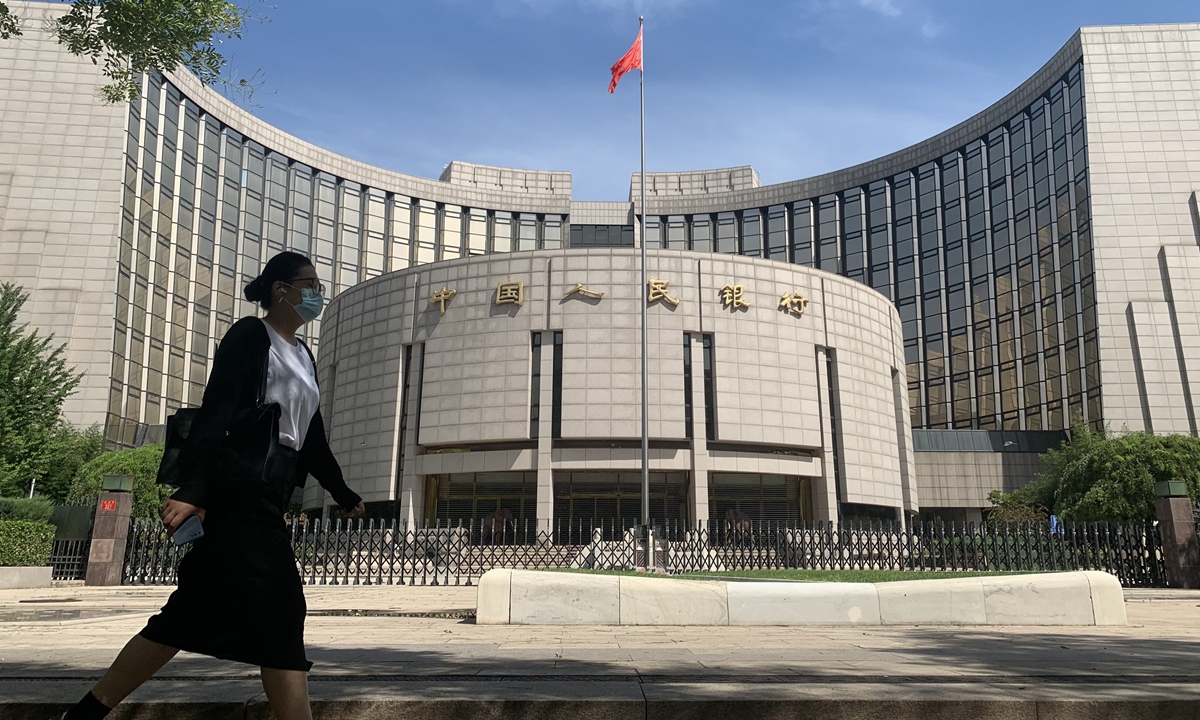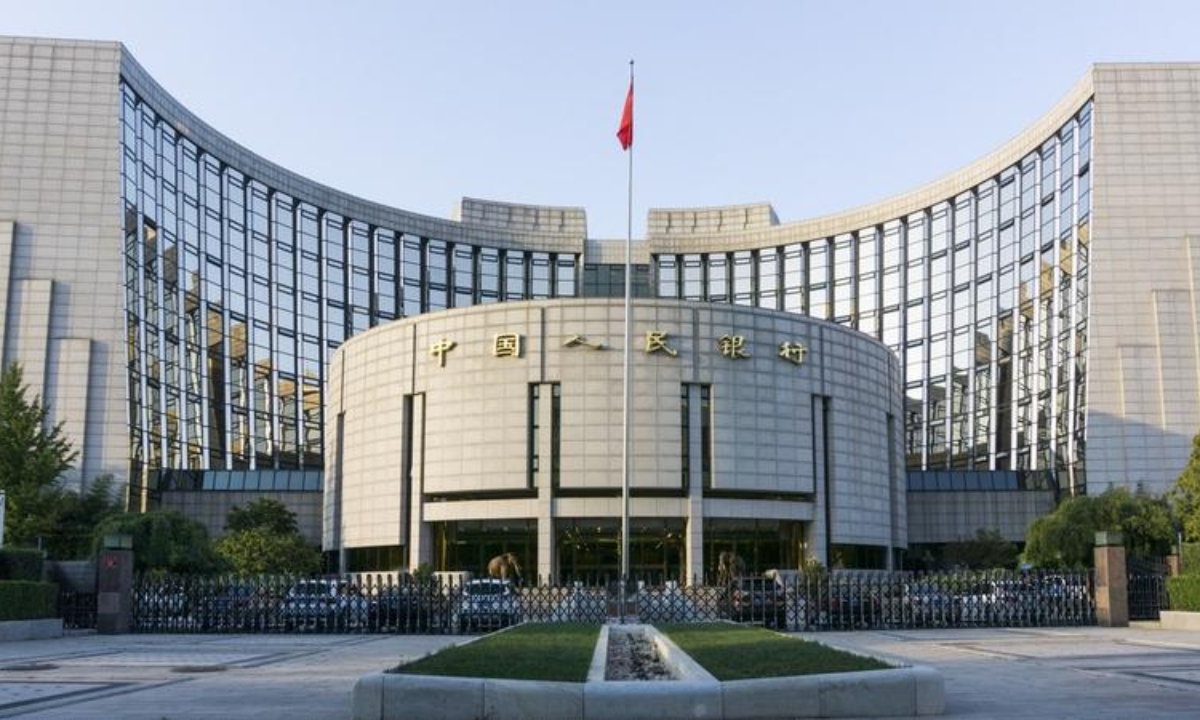PBC launches swap facility to boost capital market, as China’s macro-policies maintain strength, continuity to bolster economy
Macro policy support accelerated to shore up growth: economists

A view of the PBC building in Beijing Photo: VCG
China's central bank announced on Thursday that it has launched the Securities, Funds and Insurance companies Swap Facility (SFISF), with an initial scale of 500 billion yuan ($70.61 billion), aiming to ensure "the healthy and stable development of the capital market."
The new monetary policy tool will allow eligible securities, funds and insurance companies to use their assets including bonds, stock exchange-traded funds and holdings in constituents of the CSI 300 Index as collateral in exchange for highly liquid assets like treasury bonds and central bank bills, the People's Bank of China (PBC) said in a statement.
Applications from eligible securities, funds and insurance companies began to be accepted as of Thursday, the central bank said.
The move marks the rollout of the country's "first monetary policy tool" that directly supports the development of the capital market, Wen Bin, chief economist at China Minsheng Bank, told the Global Times.
"Involving various market players and much technical support, such an innovative tool has higher demand for policy coordination," Wen said.
Lately, the Chinese authorities have ramped up macro-policy support, and enhanced coordination among monetary, fiscal and other policies to strengthen counter-cyclical policy adjustment in order to ensure steady economic growth and high-quality development.
Since China's financial authorities announced a broader-than-expected policy package on September 24, the government has held intensive meetings on policy stimulus to shore up the economic recovery.
Cao Heping, an economist at Peking University, told the Global Times on Thursday that more policy measures are expected in the fourth quarter to ensure the upward growth momentum of the Chinese economy.
The Ministry of Finance is scheduled to hold a press conference on Saturday to be attended by Finance Minister Lan Fo'an. The conference will focus on intensifying the counter-cyclical adjustment of fiscal policy to bolster economic growth, per an official notice.
Monetary and fiscal measures are the two major macro-adjustment tools. A series of monetary policy moves were rolled out last month, which produced immediate effect, Jia Kang, head of the China Academy of New Supply-side Economics, a Beijing-based private think tank, told the Global Times.
"Generally speaking, fiscal policy should necessarily act in concert with monetary policy. It is expected that incremental fiscal policy moves will be announced at the upcoming news conference to boost high-quality economic growth," Jia said.


